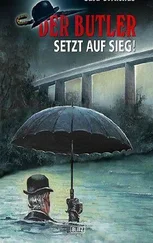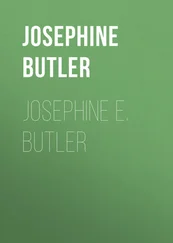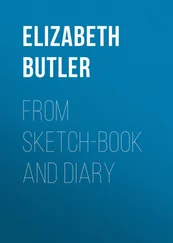Elizabeth Butler - An Autobiography
Здесь есть возможность читать онлайн «Elizabeth Butler - An Autobiography» — ознакомительный отрывок электронной книги совершенно бесплатно, а после прочтения отрывка купить полную версию. В некоторых случаях можно слушать аудио, скачать через торрент в формате fb2 и присутствует краткое содержание. ISBN: , Жанр: foreign_language, foreign_antique, foreign_prose, Биографии и Мемуары, на английском языке. Описание произведения, (предисловие) а так же отзывы посетителей доступны на портале библиотеки ЛибКат.
- Название:An Autobiography
- Автор:
- Жанр:
- Год:неизвестен
- ISBN:http://www.gutenberg.org/ebooks/41638
- Рейтинг книги:5 / 5. Голосов: 1
-
Избранное:Добавить в избранное
- Отзывы:
-
Ваша оценка:
- 100
- 1
- 2
- 3
- 4
- 5
An Autobiography: краткое содержание, описание и аннотация
Предлагаем к чтению аннотацию, описание, краткое содержание или предисловие (зависит от того, что написал сам автор книги «An Autobiography»). Если вы не нашли необходимую информацию о книге — напишите в комментариях, мы постараемся отыскать её.
An Autobiography — читать онлайн ознакомительный отрывок
Ниже представлен текст книги, разбитый по страницам. Система сохранения места последней прочитанной страницы, позволяет с удобством читать онлайн бесплатно книгу «An Autobiography», без необходимости каждый раз заново искать на чём Вы остановились. Поставьте закладку, и сможете в любой момент перейти на страницу, на которой закончили чтение.
Интервал:
Закладка:
“When we left Boppart, Mamma and we two girls were half hidden in bouquets, and our Marienberg friends clustered at the railway carriage door and on the step – the ‘ Sauer-kraut ,’ the ‘Flighty,’ the ‘Athlete’ and all, and, as we started, the salutations were repeated for the twentieth time, the ‘Athlete’ taking a long sniff of my bouquet, then quickly blocking his nose hard to keep the scent in, after going through the pantomime of the ear, the finger, and the heart. As Papa said, ‘One gets quite reconciled to the two-legged creature when meeting such people as these.’ Good-bye, lovely Boppart, of ever sweet recollections!”
We tarried at Cologne on our way to England. I see, together with admiring and elaborate descriptions of the cathedral, a note on the kindly manners of the Germans, so curiously at variance with the impression left on the present generation by the episodes of the late war. At the table d’hôte one evening the two guests who happened to sit opposite our parents, on opening their champagne at dessert, first insisted on filling the two glasses of their English vis-à-vis before proceeding to fill their own. German manners then! The military class kept, however, very much aloof, and were very irritating to us with their wilfully offensive attitude. That unfortunate spirit had already taken a further step forward after the conquest of Schleswig-Holstein, and was to go further still after the knock-down blow to Austria; then in 1870 comes more arrogance, and so on to its own undoing in our time.
“ Aix la Chapelle. – Good-bye, Cologne, ever to remain bright by the remembrance of its cathedral and that museum containing pictures which have so inspired my mind. And so good-bye, dear, familiar Rhine; not the Rhine of the hurried tourist and his John Murray Red Book, but the glorious river about whose banks we have so often wandered at our leisure.
“And now ‘ Vorwärts , marsch !’ Northwards, to the Land of Roast Beef plus Rinderpest. 1 1 The cattle plague was raging in England.
But first, Aachen. Ineffable poetry surrounds this evening of our arrival, for from the three churches which stand out sharp against the bright moonlight sky in front of the hotel there peal forth many mellow bells, filling my mind with that sort of sadness so familiar to me. This is All Hallows’ Eve.
“ November 1st. – We saw the magnificent frescoes in the long, low, arched hall of the Rathhaus, which is being magnificently restored, as is the case with all the fine things of the Prussia we have seen. We only just skimmed these great works of art, for the horses were waiting in the pelting rain… The first four frescoes we saw were by Rethel, the first representing the finding of the body of Charlemagne sitting in his tomb on his throne, crowned and robed, holding the ball and sceptre; a very impressive subject, treated with all its requisite poetry and feeling. The next fresco represents in a forcible manner Charlemagne ordering a Saxon idol to be broken; the third is a superb episode from the Battle of Cordova, where Charlemagne is wresting the standard from the Infidel. The horses are all blindfolded, not to be frightened by the masks which the enemy had prepared to frighten them with. The great white bulls which draw the chariot are magnificently conceived. The fourth fresco represents the entry of the great emperor – whose face, by the by, lends itself well to the grand style of art – into Pavia; a superb composition, as, indeed, they all are. After painting this the artist lost his senses. No doubt such efforts as these may have caused his mind to fail at last. He had supplied the compositions for the other four frescoes which Kehren has painted, without the genius of the originator. We were shown the narrow little old stone staircase up which all those many German emperors came to the hall. I could almost fancy I saw an emperor’s head coming bobbing up round the bend, and a figure in Imperial purple appear. Strange that such a steep little winding staircase should be the only approach to such a splendid hall. The new staircase, up which a different sort of monarch from the old German emperors came a few days ago, in tight blue and silver uniform, is indeed in keeping with the hall, and should have been trodden by the emperors, whereas this old cad of a king 2 2 William I., afterwards German Emperor.
( sic ) would get his due were he to descend the little old worn stair head foremost.”
At Brussels my entry runs: “ November 3rd. – My birthday. I feel too much buoyed up with the promise of doing something this year to feel as wretched as I might have felt at the thought of my precious ‘teens dribbling away. Never say die; never, never, never! This birthday is ever to be marked by our visit to Waterloo, which has impressed me so deeply. The day was most enjoyable, but what an inexpressibly sad feeling was mixed with my pleasure; what thoughts came crowding into my mind on that awful field, smiling in the sunshine, and how, even now, my whole mind is overshadowed with sadness as I think of those slaughtered legions, dead half a century ago, lying in heaps of mouldering bones under that undulating plain. We had not driven far out of Brussels when a fine old man with a long white beard, and having a stout stick for scarcely-needed support, and from whose waistcoat dangled a blue and red ribbon with a silver medal attached bearing the words ‘Wellington’ and ‘Waterloo,’ stopped the carriage and asked whether we were not going to the Field and offering his services as guide, which we readily accepted, and he mounted the box. This was Sergeant-Major Mundy of the 7th Hussars, who was twenty-seven when he fought on that memorable 18th June, 1815. In time we got into the old road, that road which the British trod on their way to Quatre Bras, ten miles beyond Waterloo, on the 16th. We passed the forest of Soignies, which is fast being cleared, and at no very distant period, I suppose, merely the name will remain. What a road was this, bearing a history of thousands of sad incidents! We visited the church at Waterloo where are the many tablets on the walls to the memory of British officers and men who died in the great fight. Touching inscriptions are on them. An old woman of eighty-eight told us that she had tended the wounded after the battle. Is it possible! There she was, she who at thirty-eight had beheld those men just half a century ago! It was overpowering to my young mind. The old lady seems steadier than the serjeant-major, eleven years her junior, and wears a brown wig. Thanks to the old sergeant, we had no bothering vendors of ‘relics.’ He says they have sold enough bullets to supply a dozen battles.
“We then resumed our way, now upon more historic ground than ever, the field of the battle proper. The Lion Mound soon appeared, that much abused monument. Certainly, as a monument to mark where the Prince of Orange was wounded in the left shoulder it is much to be censured, particularly with that Belgian lion on the top with its paw on Belgium, looking defiance towards France, whose soldiers, as the truthful old sergeant expressed himself, ‘could any day, before breakfast, come and make short work of the Belgians’ ( sic ). But I look upon this pyramid as marking the field of the fifteenth decisive battle of the world. In a hundred years the original field may have been changed or built upon, and then the mound will be more useful than ever as marking the centre of the battlefield that was. To make it much ground has been cut away and the surface of one part of the field materially lowered. On being shown the plan for this ‘Lion Mound,’ Wellington exclaimed, ‘Well, if they make it, I shall never come here again,’ or something to that effect, and, as old Mundy said, ‘the Duke was not one to break his word, and he never did come again.’ Do you know that, Sir Edwin Landseer, who have it in the background of your picture of Wellington revisiting the field? We drove up to the little Hotel du Musée, kept by the sergeant’s daughter, a dejected sort of person with a glib tongue and herself rather grey. We just looked over Sergeant Cotton’s museum, a collection of the most pathetic old shakos and casques and blundering muskets, with pans and flints, belonging to friend and foe; rusty bullets and cannon balls, mouldering bits of accoutrements of men and horses, evil-smelling bits of uniforms and even hair, under glass cases; skulls perforated with balls, leg and arm bones in a heap in a wooden box; extracts from newspapers of that sensational time, most interesting; rusty swords and breastplates; medals and crosses, etc., etc., a dismal collection of relics of the dead and gone. Those mouldy relics! Let us get out into the sunshine. Not until, however, the positive old soldier had marshalled us around him and explained to us, map in hand, the ground and the leading features of the battle he was going to show us.
Читать дальшеИнтервал:
Закладка:
Похожие книги на «An Autobiography»
Представляем Вашему вниманию похожие книги на «An Autobiography» списком для выбора. Мы отобрали схожую по названию и смыслу литературу в надежде предоставить читателям больше вариантов отыскать новые, интересные, ещё непрочитанные произведения.
Обсуждение, отзывы о книге «An Autobiography» и просто собственные мнения читателей. Оставьте ваши комментарии, напишите, что Вы думаете о произведении, его смысле или главных героях. Укажите что конкретно понравилось, а что нет, и почему Вы так считаете.












